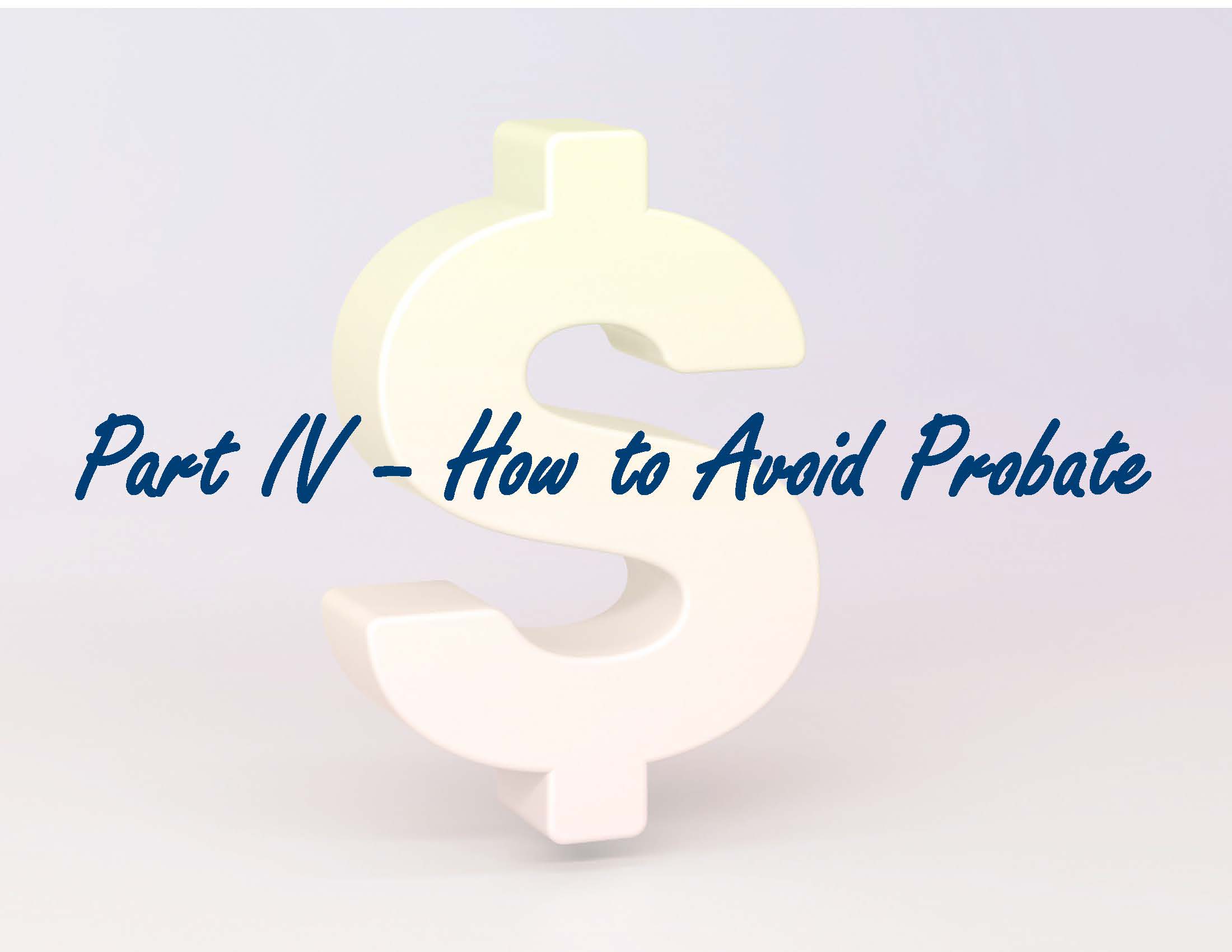Avoid Probate No. 4 – Joint Tenancy Part B
- Explaining the concept of how it’s possible to own something yet not have a beneficial interest in it
- Explaining the two other types of joint tenancy, which I label Survivorship-Only Ownership and Name-Only Ownership
A reader shared that he was left “victimized, terrorized and traumatized” from what he referred to as 8 years of “legal terrorism” related to a fight over his father’s estate. He challenged me to write about avoiding probate to protect others against such an outcome.
I’ve taken up that challenge.
This is the fourth of a series. If you haven’t been following along, I recommend starting at the beginning. Let me know if you have difficulty finding the other columns and I’ll help you.
Last week I explained that there are three types of joint tenancy. I then described the most common, which is how most couples own their home.
I gave it a label: Shared Ownership with Survivorship because:
- Ownership is truly shared. Each owner has the same beneficial interest in the property, and
- Each owner has the right of survivorship.
To understand the difference between this type of joint tenancy and the other types, it’s important to understand how it’s possible to “own” something yet not have a beneficial interest in it. I will give two examples.
Consider your mother adding you as a joint account holder on her bank account so that you can help manage her finances. Your name is on the account, and you have full access to the funds, but you would be stealing if you withdrew any funds for your own use. You and your mother are both “on title” to the funds but only your mother is the beneficial owner.
Now consider your mother giving you money to run an errand to purchase a lottery ticket for her. As asked, you purchase the ticket. You have the ticket in your possession. Possession is 9/10ths of the law! But it belongs to your mother. If your mother’s numbers came up, you would be stealing if you redeemed it and kept the money. Your mother is the beneficial owner of that lottery ticket and any winnings.
Each of the other two types of joint tenancy starts with a sole, beneficial owner of property, such as a parent. They then add an intended estate beneficiary, typically a child, to the title.
They don’t technically add their child the title. More accurately, the parent transfers title from their sole ownership to themselves and their child in joint tenancy.
If it is their intention to give their child the gift of beneficial ownership along with the right of survivorship, their ownership will be the same as most spouses, i.e. Shared Ownership with Survivorship.
More likely, they intend to create one of the other types of joint tenancy, where their child gains no beneficial interest in the property.
If the child has no beneficial interest, the child has no right to the use or possession of the property. Nobody making a claim against the child (a creditor or separated spouse) can gain a beneficial interest in the property either.
There are two types of joint tenancy where the person added to title in joint tenancy has no beneficial interest. What distinguishes the two is what happens after the beneficial owner (the parent) dies.
With one, the child has the right of survivorship. The parent’s ownership interest is extinguished, and the child becomes the sole beneficial owner. I will label this type of joint tenancy “Survivorship-Only Ownership” because the child has no beneficial ownership while the parent is alive but has the right of survivorship.
With the other, the parent’s name comes off title leaving the child as the sole title holder, but the parent’s beneficial ownership continues. It’s like what would happen if your mom died before the winning lottery ticket was cashed in. You would be holding onto that ticket, and the cash proceeds, for the benefit of your mother’s estate. I will label this type of joint tenancy “Name-Only Ownership” because the child is on title in name only both while the parent is alive as well as after the parent’s death.
Tune in next week to learn about how Survivorship-Only Ownership and Name-Only Ownership are created and their value in estate planning.




